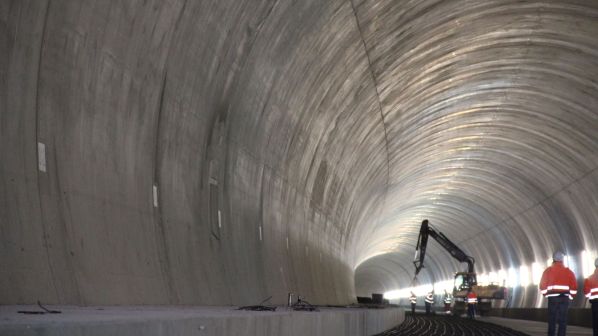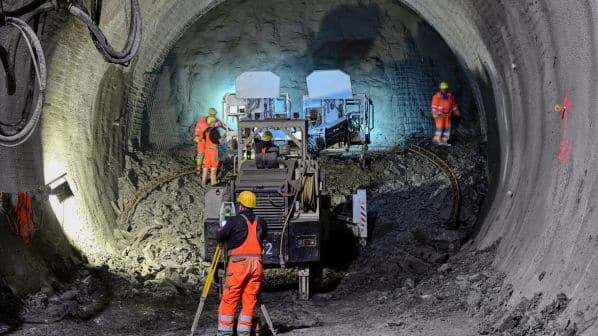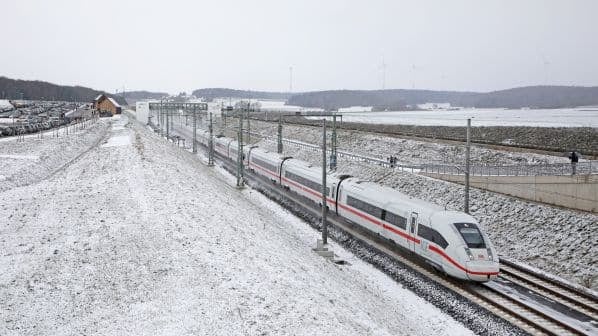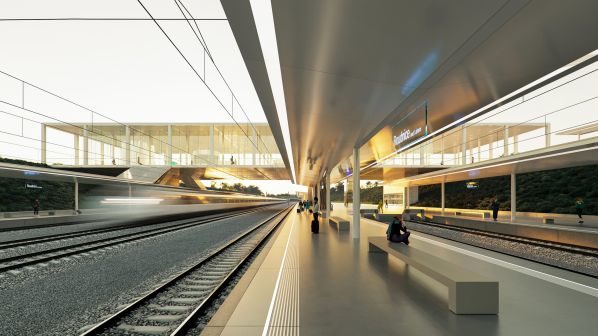GERMANY is to build its longest railway tunnel as part of the planned 150km new line between Dresden and the Czech capital Prague, German Rail (DB) has announced. The tunnel will enable passengers to travel between the two cities in just one hour and at a speed of up to 200km/h upon completion in the mid-2040s.
The original plans for the new line dating from 2018 would have seen the railway constructed only partly underground on the German section of the new line, and would have included a 40m high bridge through a residential area in Pirna southeast of Dresden. However, concerned by the noise and other environmental impact, a citizens’ initiative put forward a full tunnel alternative instead, which has now been officially endorsed by DB and representatives of the region.
“Eventually, it was quite obvious that the full tunnel variant is the preferred option,” DB Network project leader, Mr Kay Müller, said when presenting the plans, according to Tag24. “It is clearly ahead on all important criteria such as environment, traffic and technology, as well as financial efficiency.”
“We’re totally happy. This is a good day for democracy,” Mr Steffen Spittler, spokesperson for the citizens’ initiative, told Dresdner Neueste Nachrichten. “But we won’t rest on our laurels and will keep an eye on further developments.”
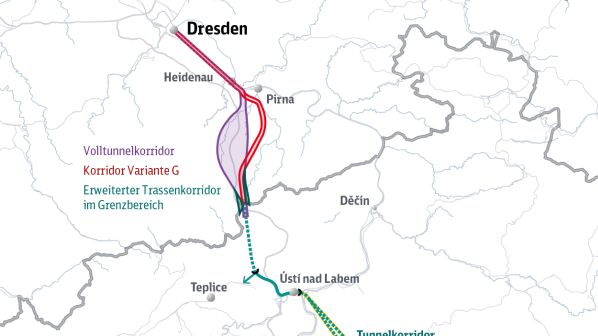
The twin-bore 30.4km Erzgebirgs Tunnel through the Erz mountains that form the border between Saxony and Bohemia will be built between Heidenau, Germany, and Ústí nad Labem, Czech Republic. It will be almost three times as long as the Landrücken Tunnel, which is currently Germany’s longest, and about one and a half times the length of the Fehmarnbelt Tunnel currently under construction.
The new line will slash the journey time between Dresden and Prague from 2h 27min to just one hour, and between Berlin and Vienna from eight to four hours. It is estimated that the new tunnel will be used by 200 trains day, around 75% of which are expected to be freight trains.
As well as relieving congestion on the existing network in the Elbe Valley, currently operating at peak capacity, the new tunnel will also form part of the European corridor connecting Baltic and North Sea ports with the Mediterranean and the Black Sea. The European Union will part-fund the project, the estimated cost of which has not yet been disclosed.
DB will start the required consultation process with local stakeholders next year. The federal government will make the final decision on both whether to build the new tunnel and how to finance it. DB expects construction to start by 2032 and take 12 years to complete.
For more information on European rail projects, subscribe to IRJ Pro.
